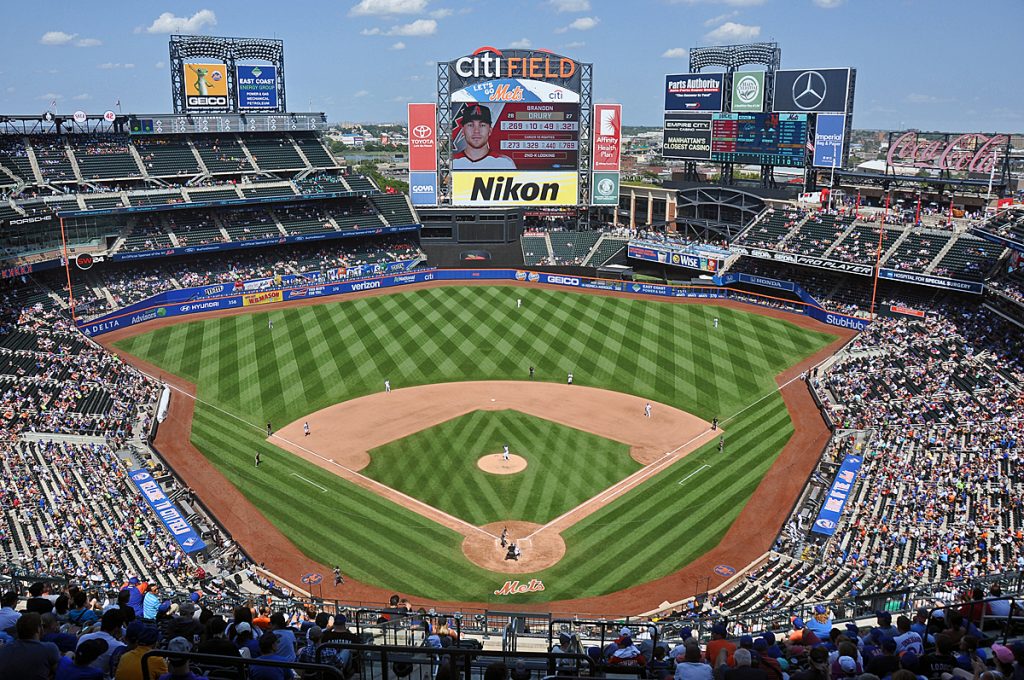When Baseball Went to Pot

If you’ve ever been to a baseball game or, for that matter, just about any other major sporting event, you know that the field of play needs to be pristine. Baseball stadiums and most other sports hire teams of groundskeepers whose job it is to make sure that there are no divots or bumps or other imperfections that can cause harm to the players. And beyond that, you want the field to look nice for fans at the ballpark or those watching on television. Take, for example, the lawn care seen above. It doesn’t happen by accident.
But when baseball isn’t in season, the field doesn’t matter as much. And in some cases, treating the field like holy ground comes at a cost — you can’t use it for other purposes that would otherwise generate some additional revenue. That’s probably what the powers-that-be in Anaheim were thinking in 1976. On March 21st of that year — a few weeks before the then-California Angels began their season — the stadium opened its doors to the world-famous rock band, The Who. More than 55,000 fans crowded into the ballpark in what Billboard called “the largest pop-rock concert ever held [at the stadium” (see page 37 of this pdf). The event was a huge success, bringing in more than $500,000 (about $2.3 million in today’s dollars). And as the stadium’s official capacity was only 45,000, those extra fans had to go somewhere. While the infield was roped off, fans were allowed to stand in center field.
Which is how the weeds got there.
No, wait, not weeds. Weed.
As the Santa Ana Register reported a couple of days later, the Who fans didn’t treat center field as hallowed ground; some even started a small bonfire there. But the real damage came by accident. Per the Register, “police arrested 112 young persons during [the] concert and cited numerous others under the states’ new liberalized marjuana law.” Basically, a lot of fans smoked a lot of pot.
If that happened today, that likely wouldn’t be a long-term issue (although I really wouldn’t know); modern marijuana is more leaf than anything else. But in 1976, it wasn’t uncommon for some seeds to be stuck in your mix. Get enough pot smokers together outside on field, give the grass enough sunlight and water (which you would if you were trying to get the field ready for Opening Day), and… yeah, you’re going to get some interesting plants growing. And that’s exactly what happened. A week or so before the Angels were set to host the Oakland Athletics to kick off the season, about 100 marijuana plants sprouted in center field.
The city — which had authorized the concert as a way to generate more revenue — had to use “a few thousand dollars” per the Register to clean up the mess. Yes, there were cheaper ways to do it; per the Los Angeles Times, then-mayor William J. Thom joked that “the economic situation at the stadium has not reached such a perilous point that we have to resort to growing marijuana.” And, as the book Baseball Hall of Shame vol. 3 points out, there were probably plenty of people who would have picked the plants for free: “stadium manager Tom Lielger told head groundskeeper Joe Verdi to turn down any volunteers who wanted to help rid the field of the illegal weed — even if they were willing to work for nothing.” Instead, the city just went with some regular old herbicide.
The outfield was ready to go before the Angels took the field on April 9th. But maybe the Angels would have been better off if it hadn’t. They lost that game, 5-2, and finished the season in 4th place in their division.
Bonus fact: From 1961 through 1965, the Angels were known as the “Los Angeles Angels.” But after the 1965 season, right before they moved to their new stadium in Anaheim (which isn’t in Los Angeles), they changed their name to the “California Angels,” which they kept until 1996. In 1997, the team and Anaheim struck a deal to renovate the stadium — the city would contribute $30 million to the $118 million overhaul, and in exchange, the team would rename itself the “Anaheim Angels.” And that stuck — until 2005.
That year, a new owner (Arte Moreno) purchased the team and, wanting to reference LA itself, renamed the team “the Los Angeles Angels of Anaheim,” arguing that the “of Anaheim” inclusion met the requirements of the lease agreement. The courts agreed but, to avoid further problems, the Angels rarely if ever include the words “Los Angeles” on their uniforms (seen here) or official team merchandise.
From the Archives: HIgh and Outside: A baseball pitcher goes to California, gets high, and has a great day.
